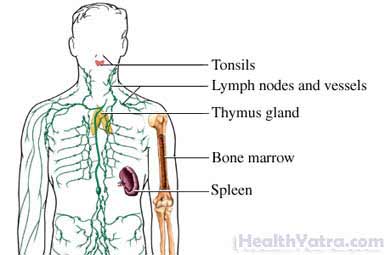Definition
Immunoglobulins are special proteins in the blood that fight infections. Some of our white blood cells make them. They are also known as antibodies. Antibodies are important for the immune system. In immunoglobulin therapy (IVIg), extra immunoglobulins from a donor are injected into your blood.

Reasons for Procedure
It is used to treat disorders of the immune system, such as:
- Autoimmune disease—the body begins to attack its own cells
- Immunodeficiency—low-functioning immune system
- Inflammatory diseases
- Other diseases that weaken the immune system
IVIg can also reduce inflammation in the body. Some conditions, including acute infections, may need IVIg to restore antibodies and boost the immune system.
Possible Complications
Complications are rare, but no procedure is completely free of risk. If you are planning to have IVIg, your doctor will review a list of possible complications, which may include:
- Headache
- Infection
- Fluid in the lungs
- Damage to the kidneys
- Blood clots
- Allergic reaction to the IVIg
What to Expect
Prior to Procedure
No special instructions are given prior to the procedure. Before the solution is given, it is closely screened for any viruses, diseases, or infections.
Description of the Procedure
Concentrated immunoglobulin antibodies will be collected from a healthy individual. These antibodies are added to a sterile solution.
An IV needle will be inserted into a vein in your arm. The combined solution will be delivered from a hanging bag through the IV to your vein.
How Long Will It Take?
About 5-6 hours
Will It Hurt?
The procedure is not painful. There may be some minor discomfort as the IV is inserted into the skin.
Post-procedure Care
The site where the IV was put in may become irritated. You should check with your doctor if this happens.
You may begin to see an improvement in your original symptoms as soon as 24-48 hours following the procedure. For some, it may be 3-4 weeks before an improvement is seen.
Immunoglobulin therapy is usually done in cycles. For an infection or other immune system deficiency, therapy is usually recommended every 3-4 weeks. If you have a neurological or autoimmune disease, therapy is administered for five days a month for 3-6 months. Following the initial therapy, maintenance therapy is administered every 3-4 weeks.
Call Your Doctor
As with the introduction of any foreign substance or chemical to the body, the possibility of allergic reaction exists. If you experience any of the following symptoms of anaphylactic shock (severe allergic reaction), you should call the doctor immediately:
- Wheezing and/or difficulty breathing
- Confusion
- Slurred or abnormal speech
- Rapid heartbeat or heart palpitations, weak or rapid pulse
- Blue tint to the skin, lips, or fingernails
- Dizziness, lightheadedness, or feeling faint
- Hives, rash, or itching
- Anxiety
- Nausea, vomiting, diarrhea, or abdominal cramping
- Cough or nasal congestion
- Reddened skin
In case of an emergency, call for medical help right away.
